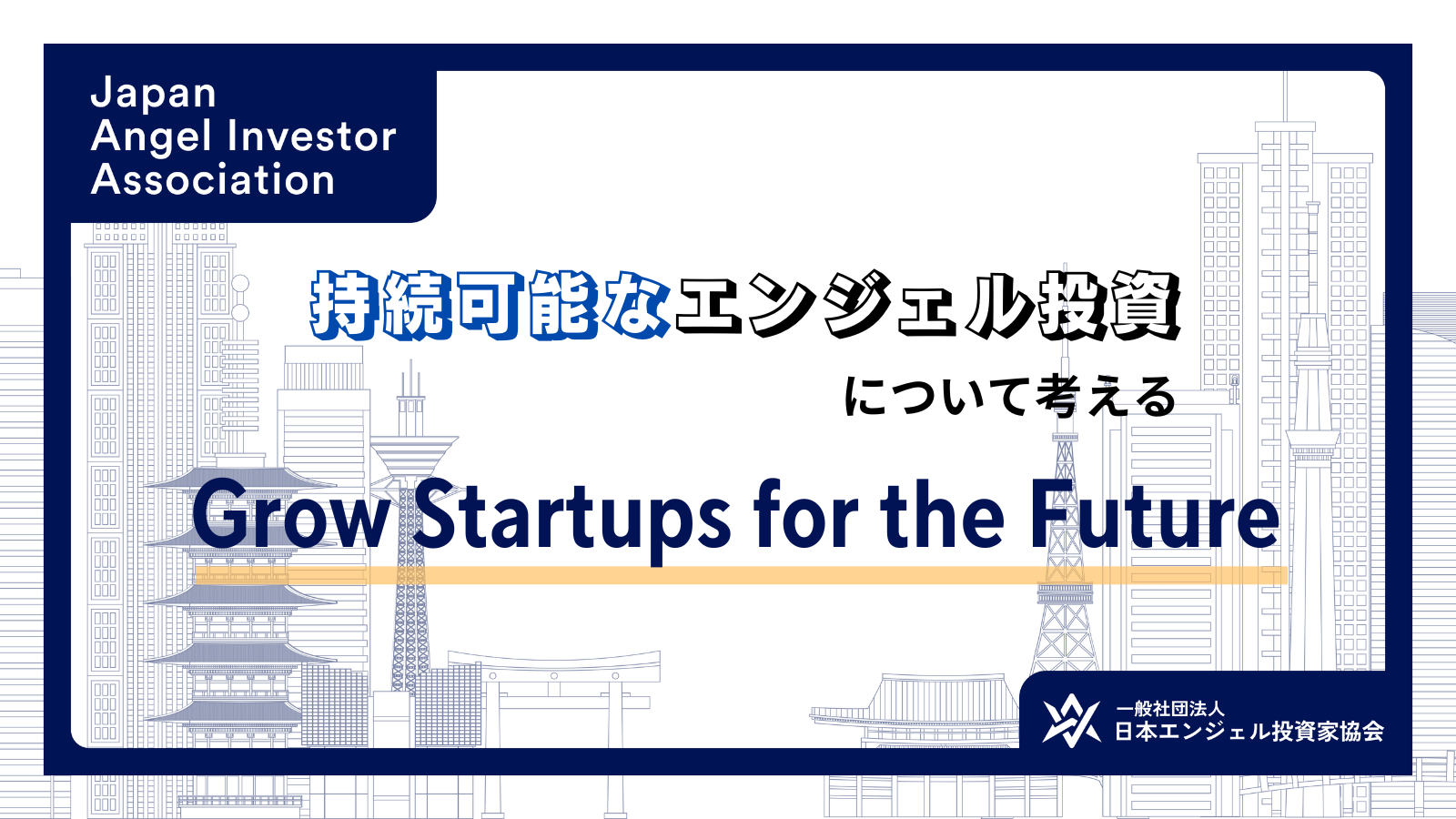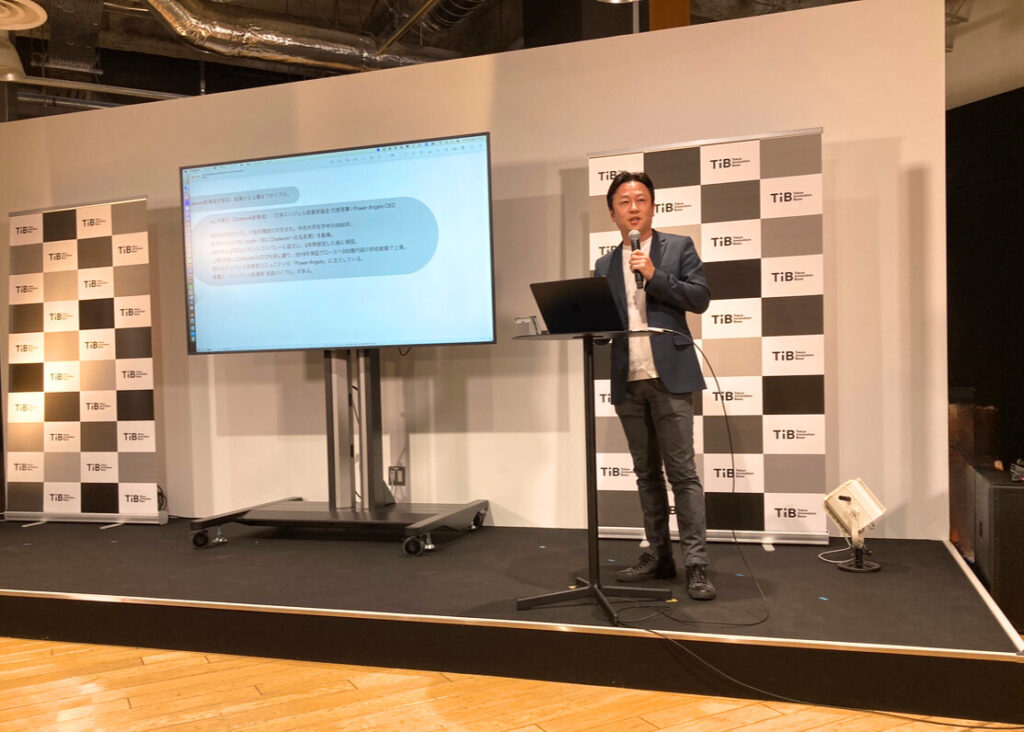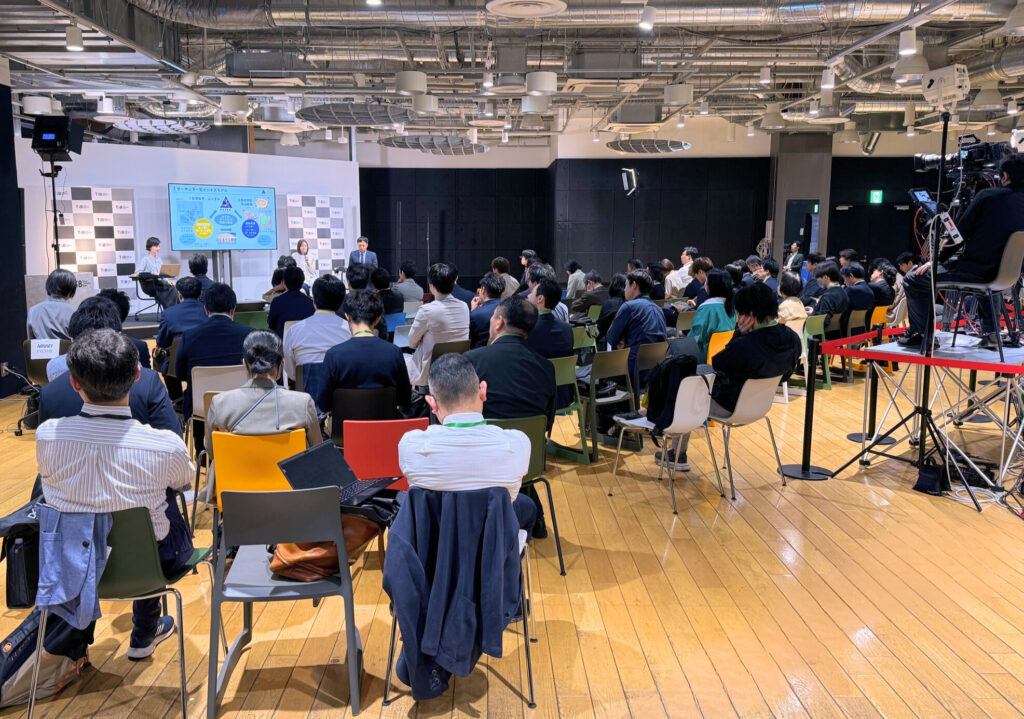

2024.4.28
Event Report

Our association is committed to enhancing the angel investment environment in Japan and supporting the growth of startups. We regularly share updates, the latest news, and reports on pitch events, providing various information related to angel investment on a monthly basis.
On April 26, 2024, our representative director, Toshiyuki Yamamoto, delivered a keynote speech and participated in a panel discussion at the “Grow Startups for the Future” event held in Tokyo. This event marks the first initiative by Nikkei Inc. to further engage in the startup approach this year.
You can watch the archived distribution starting from May 27, but here we provide a report on the panel discussion. Additionally, we include Yamamoto’s “Experience with Tesla’s Full Self-Driving (FSD) in America” to give you a sense of the current state of autonomous driving technology. We hope you find it insightful.
Nikkei Inc. has been hosting the pitch event “Star★At Pitch JAPAN” since 2019, connecting startups, venture businesses, and companies. In response to the Kishida administration’s “Five-Year Startup Development Plan,” the event has been renamed “NIKKEI THE PITCH” to reflect a company-wide commitment to supporting startups.
Nikkei’s belief that “we need to increase the number of angel investors in Japan” aligns with our association’s activities. As such, we were invited to discuss Japan’s current situation and schemes to increase the number of angel investors.

Toshiyuki Yamamoto, representative director, speaking at the keynote speech of Grow Startups for the Future
Yamamoto: In March, I attended a discussion with David S. Rose, a legendary angel investor and serial entrepreneur in America. He has invested in numerous startups and is the founder of “New York Angels,” one of the most active angel investment groups in NY. He is also the author of the bestseller ‘Angel Investing.’
According to David, investing is like wine – there are good years and bad years. Factors like war, COVID-19, and exchange rates play a role, so investing all at once in the first year during a bad year can be disastrous.
He recommends investing $25,000 (about 4 million yen) in one company every three months, amounting to four companies per year and $100,000 annually for six years. Given the high risk of angel investing, he suggests limiting investment to 10% of disposable assets.
Simple calculations show that you need to have around $6 million (900 million yen) to invest that 10%. It’s worth considering how many such angel investors exist in Japan.
—Given the time until an exit, only very wealthy individuals can go six years without a return.
Yamamoto: We aim to further refine David’s investment scheme to a Japanese version of “Angel Investment Success Method.” Following his method, we propose investing 2 million yen in one seed or early-stage startup every three months, totaling four companies per year. Additionally, we suggest investing 2 million yen each in one or two later-stage companies preparing for an IPO annually. This totals 12 million yen per year, continuing at the same pace into the second year.
By the second or third year of angel investing, at least one of the later-stage companies will likely go public, bringing in some returns. This allows for self-sustaining investments from the second or third year onwards.
From my experience, over 90% of Japanese angel investors quit within three years.
Typically, they invest heavily in the first year, and by the second year, some companies have gone bankrupt, money runs out, and they quit, thinking angel investing isn’t profitable. Even angel investors with money from IPOs or exits often lose interest after their portfolio exceeds 30 companies and quit.
Therefore, no matter how much we work to increase the number of angel investors, it will never increase if the bucket has holes. We aim to create an environment where “potential angel investors,” such as small business owners, can continue investing without quitting and ensure the longevity of investment activities.
Participants attentively listening to the panel discussion

Participants attentively listening to the panel discussion
The Kishida administration announced the creation of a special zone in September 2023 to “revitalize asset management.” The Financial Services Agency plans to designate municipalities for the special zone by summer this year, with Fukuoka and Sapporo among the candidates.
(Excerpt from Yomiuri Shimbun Online)
Foreign businesses face hurdles with Japanese procedures and lengthy examinations, so the special zone proposes exempting asset managers with track records in countries or regions with certain financial oversight standards from domestic registration examinations. The aim is to shorten the management visa examination period from one to three months, enabling smooth business starts.
To expand investment opportunities in startups, the number of invitees for investment solicitation will increase from the current 49 people. These deregulation measures address issues pointed out by overseas companies when Fukuoka’s public-private-academic organization “Team Fukuoka” worked to attract international financial institutions since 2020.
The special zone is envisioned to cover the entire prefecture. Mayor Takashima emphasized Fukuoka’s proximity to Asia as a strength and highlighted the success of attracting 23 companies through Team Fukuoka. Governor Hattori noted that excellent growth industries are located in various fields and that the influx of funds would expand employment.
The Japan Angel Investor Association is recruiting “Angel Members” for angel investors and “Partner Members” for municipalities, companies, and organizations supporting startups.
Membership is free. Would you like to join us in supporting the growth of startups? For more details, visit here.
This is Toshiyuki Yamamoto, the representative director. I traveled to America on a business trip in mid-April. One of my goals during the trip was to “experience Tesla’s Full Self-Driving (FSD).” Since you can’t rent a Tesla with FSD through regular rental car services, I used TURO, a peer-to-peer car rental service like Airbnb, to reserve the car I wanted.
The car was delivered to my hotel, and I finally got into the Tesla with FSD. In short, it was “fantastic!” I drove about 500 km over two days and didn’t feel tired at all. The FSD is linked with the navigation system, so once you input your destination, it drives you there automatically.
There were no issues when using FSD, but when I drove manually, I hesitated at a left turn signal and got honked at by the car behind me (laughs). It was so comfortable that I want to drive it again in America soon.
Japan is finally starting to lift some restrictions on ride-sharing due to a shortage of taxi drivers, but fully autonomous “robot-taxis” are already becoming a reality in America and China. I hope Japanese manufacturers will also strive to catch up and surpass in autonomous driving technology.